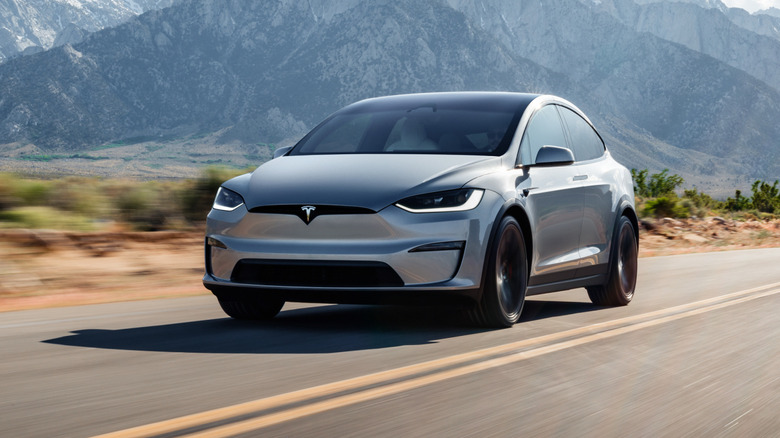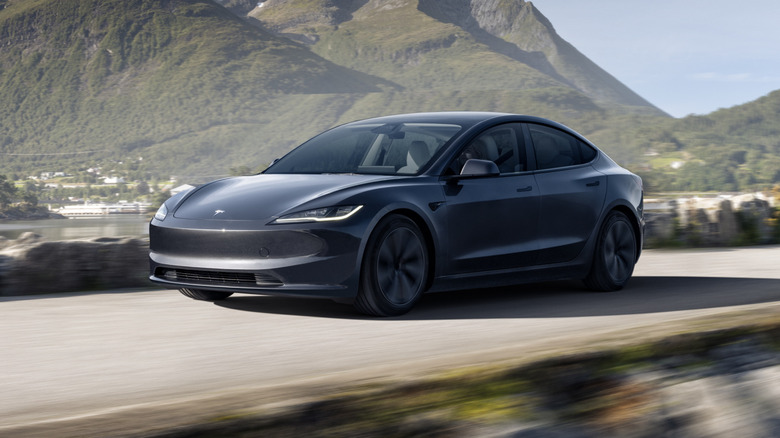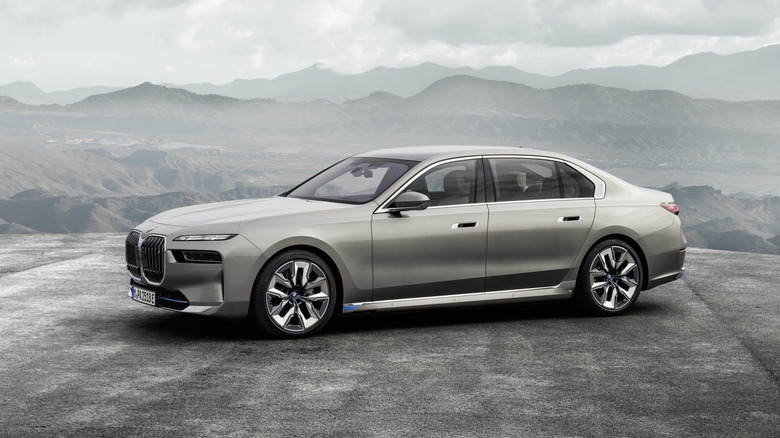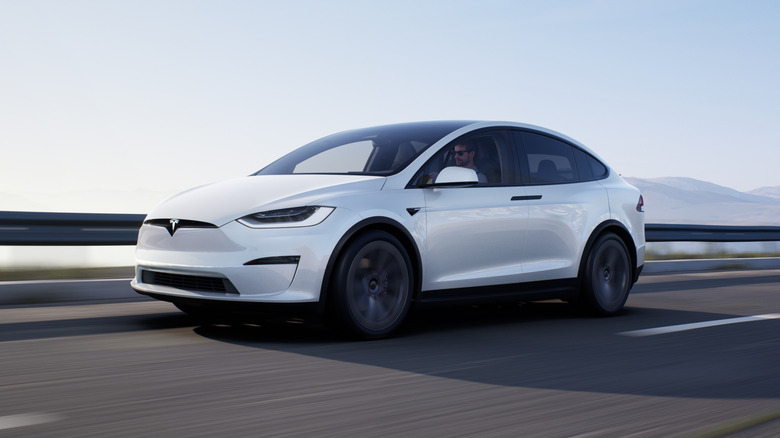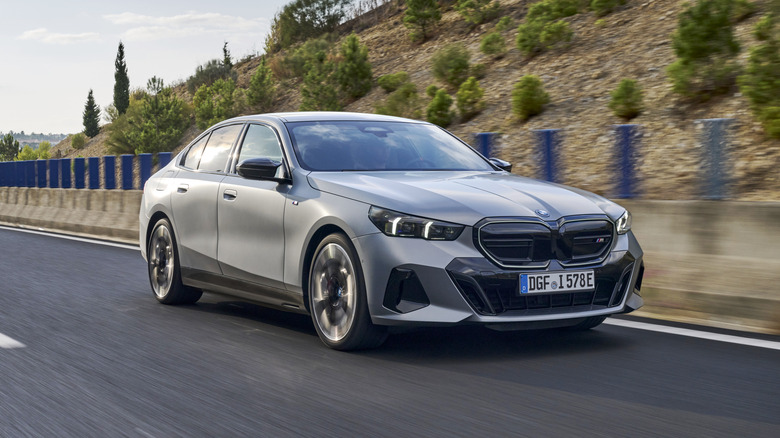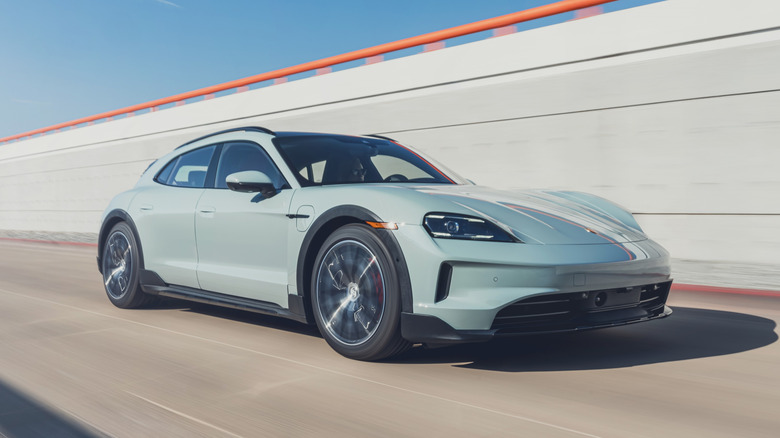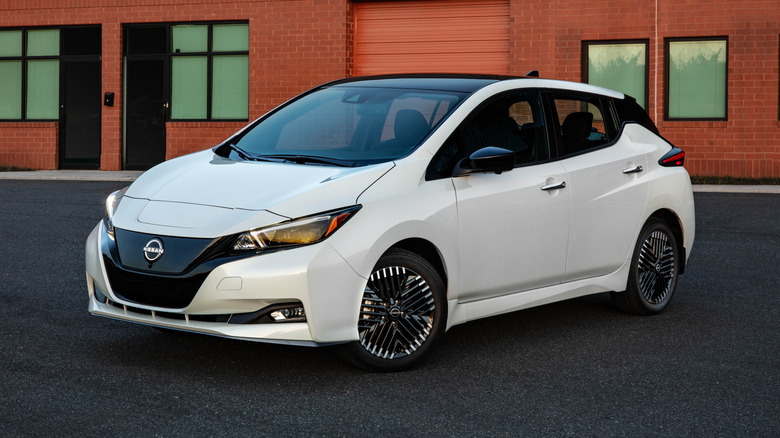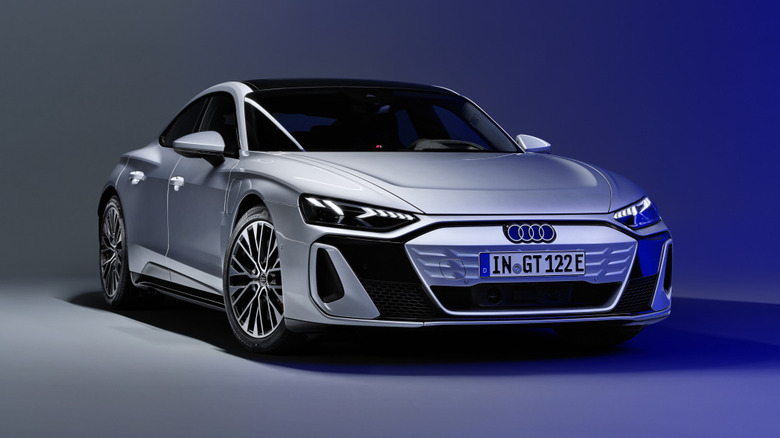4 Used EVs With The Best Resale Value (And 4 With The Worst)
More and more people are choosing to switch over to electric vehicles. Whether for environmental purposes or just not wanting to spend money on high gas prices, the EV market continues to grow and shows little sign of stopping anytime soon, especially as the catastrophic effects of climate change become ever more present in our day-to-day lives. Of course, an EV is still an investment like any other vehicle a person would purchase, and with that investment, you would hope that it would be one that can pay out over time. Well, some EVs are able to hold their value much better over time than others.
This resale value is based on a number of different factors. Of course, there is the reliability and overall owner satisfaction with the vehicle. After all, if a car isn't particularly liked by the people who drive it, why would people want to spend a lot of money on a used model? There is also name recognition to be considered. When it comes to a relatively newer product like an EV, there are some companies that just have more of an association with providing EVs to the public than others. Plus, there is just overall popularity. Chances are that if you see a lot of people driving a certain EV that you will be more likely to want that one than one you've never heard of before.
Fortunately, iSeeCars conducted a study of 26 EVs and their resale value after five years. Here's a breakdown of the best and worst on the list.
Best: Tesla Model 3
If there is one company that has been able to take complete control of the electric vehicle market, it is Tesla. It is a company that, of course, solely produces EVs, and routinely, its vehicles rank among the models that have the highest resale value. None more so than the Tesla Model 3. The Model Y may be the company's best-selling vehicle, but it doesn't hold a candle to this mid-size car. This may come as something of a surprise for the company's least expensive vehicle, but it just goes to show you that you do not need to spend a lot of money if you want to get yourself a car that will hold up over time.
Over the course of five years, iSeeCars reports that a Model 3 will be able to retain 53.3% of its initial value on average. The publication places the average price of a used model that is five years old at around $29,500. Considering the starting price for a brand new Model 3 is $29,990, that is a rather remarkable rate. Kelley Blue Book is not quite as bullish on the Model 3's used retail price, having a 2020 model cost around $26,700, but that still shows that people are willing to pay quite a lot of money for one of these. Where you fall on the price spectrum will depend on what kind of Model 3 you have, as long-range and performance models will be worth more, but overall, the Tesla Model 3 is an excellent EV investment, though you need to consider many other things before buying one.
Worst: BMW i7
On the other hand of the spectrum, you have a vehicle from one of the most beloved luxury car brands in the world. BMW has been steadily growing its all-electric division of vehicles, and it currently offers four different models of EVs for you to choose from in its i-series. While you might think that a luxury EV from a company as major as BMW would be tantalizing on the used market, that is not the case. Out of all of the EVs measured by resale value by iSeeCars, the BMW i7 was ranked at the very bottom of the list.
The i7 is BMW's all-electric version of its full-size 7 series model, and it currently has a starting price of over $105,000 if you are going to purchase one new. If you are paying that kind of money for a car, you would want it to hold its value well, but iSeeCars lists the i7 as being able to only retain 27.9% of its initial value after five years. Luxury vehicles tend to struggle on the used market more than you might think because people who typically have the financial ability to purchase one will just get a new one. That makes it rather hard to sell a used one at a price that you would want it to be sold at. Part of the appeal of used vehicles is their affordability, and the BMW i7 doesn't fit into that box. So, if you want to sell it, you'd have to drop the price far lower than it's worth.
Best: Tesla Model X
The Tesla Model 3 is not the only model from the all-electric company that ranks highly for its resale value. We go from Tesla's least expensive vehicle to one of its more expensive with the Tesla Model X. This is a mid-size luxury SUV from Tesla, and while the less expensive Model Y SUV may outperform it in sales, this is the Tesla SUV that has been able to hold up over time. According to a study by iSeeCars, a Model X loses about 49.9% of its value after five years. That is a significant step back from the Model 3, but overall, that still places it in second place.
Although this is a luxury vehicle, the starting price for a new Model X from Tesla is $65,990, which is a significantly lower starting point than the likes of the BMW i7. Currently, a five-year-old model of the SUV will cost you on average about $52,500. That is still quite a bit of money to spend on a used vehicle, but when you consider the average price of a new model is actually quite a bit higher than that starting price, it is actually quite a fair deal for both the purchaser and the owner selling it.
It should be noted that the resale value for the Model X is trending downward currently because recent model years have been able to get a federal tax credit for certain trims, making the new models more desirable. The Model X has great resale value now, but it very well may not last.
Worst: BMW i5
If we are going to spotlight Tesla for its resale value twice, we have to spotlight BMW for once again having an electric vehicle that really struggles to hold its value over time. That would be the BMW i5, the all-electric version of the company's executive car 5 series that SlashGear is quite fond of. If you are buying one of these EVs new, it has a starting price that is significantly lower than the i7 at $67,100. That certainly helps it have better resale value than that other BMW, but the difference is not all that much. iSeeCars places the i5's resale value after five years of use at 31.8%.
There is really only one main reason why its resale value is not any good right now, and that is because the BMW i5 is still a very new car. The 2024 model year was the first for the i5, so it has not even had five years to depreciate. Because it is such a new vehicle, there is little reason why someone would want to purchase one used if they have the money for it. The BMW i7 has one more year on the market than the i5, and because that has a lower resale value, it does not bode well for the trajectory of the i5 as the years continue to pass. The resale value currently given to it by iSeeCars is just what the best estimate is as of right now, so when we do get to that five-year mark, we will know the true value.
Best: Porsche Taycan Cross Turismo
Not all luxury brands struggle with maintaining good resale value for their EVs. One luxury brand you can usually count on for this is Porsche, one of the most beloved luxury automakers in the world. For the German company, it is the Porsche Taycan that has managed to stay quite valuable after five years. According to iSeeCars, the Taycan can still keep 51.5% of its original value. Importantly, this resale value percentage is exclusively for the wagon versions of the Porsche Taycan that include the Cross Turismo and Sport Turismo models. This can most likely be attributed to people being more likely to purchase a vehicle more suited for daily or family use used than the flashier executive car that is the standard Taycan.
That being said, the regular Porsche Taycan still holds its value decently well. iSeeCars determines that it can retain 42.3% of its value after five years, making it a fairly average entry on the list of EVs. Part of the reason there is the disparity between the two Taycan models is that the standard Taycan has a lot more customization with options and packages. You may never be quite sure what you are going to get with this kind of car when you look at used listings, which is why the price of a new model can range from $99,400 to $230,000. The Taycan Cross Turismo, on the other hand, has a much narrower range of price ($111,100 to $125,200), so you'll have a better idea of you'll be getting if you buy one.
Worst: Mercedes-Benz EQS
Mercedes-Benz offers three different lines of all-electric vehicles: EQB, EQE, and EQS. Quite frankly, none of them hold their resale value all that well, but the one that comes in at the very bottom is the Mercedes-Benz EQS. This is the most premium line of the company's EVs, with the lowest starting price being $104,400 for a new model, and this just shows once again that the ultra-premium luxury vehicles really struggle to keep their value over time. iSeeCars estimates that an EQS will be able to hold just 31% of its initial value after five years.
The Mercedes-Benz EQS is a true line of vehicles with three different variations, including a sedan and an SUV version. iSeeCars does not distinguish between the various models in its assessment of the EQS's resale value. It similarly does not distinguish between the different EQE models either. This can be rather problematic when trying to decipher the true resale value of the model you have. If the rest of the list is any indication, the EQS SUV will probably fare better than the sedan, but that is just an educated guess rather than a fact.
If you opt to go for an EQE model instead of an EQS, you are not going to get much better resale value with these EVs either, as iSeeCars lists its value after five years to be 35% of its initial price.
Best: Nissan Leaf
One of the EV staples that have been incredibly important in establishing them as a viable commodity is the Nissan Leaf. It goes all the way back to the 2011 model year. With a starting price of $28,140 for a brand new 2025 model, the Leaf is also one of the most affordable EVs on the market, and when you factor in its overall approval rating and reliability, it is a very sought after vehicle. This is why the Nissan Leaf has been able to hold 44.4% of its value after five years on the road.
Yes, that is a step down from the likes of the Tesla models previously mentioned, but when you consider the price of a Nissan Leaf, this is a very good number for both people looking to sell their vehicle or purchase one. The average price for a five-year-old model is going to be around $17,800. That is a very attractive price to those looking for a good EV but can't spend top dollar to get one. Not only will the owner be getting good return on their Nissan Leaf, but it will be far easier to actually sell than other more expensive models that have a much smaller potential customer base. For a perfectly rock-solid investment, the Leaf is a great option.
Worst: Audi e-tron GT
The Audi e-tron line simply signifies that it is an electric version of a particular vehicle. It also produces them for the Q4, Q6, and Q8. The Audi e-tron GT is the company's all-electric executive car, and it actually shares the same platform as the Porsche Taycan. While that car has been able to hold its resale value quite well thanks in no small part to the Porsche name, the same cannot be said for the Audi e-tron GT.
iSeeCars determines that the car will be able to hold only 32.9% of its initial value after five years. This number is the same whether we are talking about the standard GT or the RS e-tron GT, which is the performance version of the car. That is nearly a 10% drop in proportional value compared to the Taycan. The e-tron GT models are by far the most expensive EVs that the company produces, and as we have seen time and time again on this list, the premium luxury models simply do not fare all that well on the used market. The appeal of them is the freshness, and those who have the budget will more likely spring for a new model. It almost does not matter how highly rated a car like the Audi e-tron GT comes. Its resale value is quite poor.
